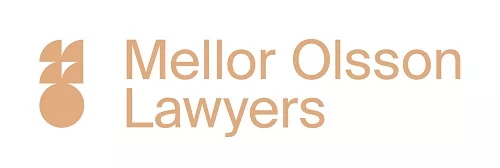- within Wealth Management topic(s)
- with Senior Company Executives, HR and Inhouse Counsel
- with readers working within the Advertising & Public Relations, Automotive and Consumer Industries industries
In the recent matter of Owies v JJE Nominees Pty Ltd, the Court of Appeal of the Supreme Court of Victoria considered the nature and extent of the obligations of a trustee of a discretionary trust (to whom had been granted an "absolute and uncontrolled" discretion to exercise its power). The Court determined that the obligation of a trustee to be properly informed with respect to the exercise of his, her or its power is a universal obligation. The exercise of a trustee's power which has not been properly exercised (with reference to the power granted in the trust deed) will open that trustee decision to the possibility of review by a court.
Background facts
JJE Nominees Pty Ltd (Trustee) was the trustee of the Owies Family Trust (Trust), a discretionary trust established in the 1970's. The Owies Family consisted of Dr John Owies, Dr Eva Owies and their three adult children. All five family members were primary beneficiaries of the trust. The preamble to the trust stated that the purpose of the trust was to make provision for the primary beneficiaries. Over the years, the directors of the Trustee were, variously, the doctors Owies, their son Michael and, later, their solicitor.
The assets of the Trust were substantial (more than $23 million) and over the years, income was distributed fairly consistently to John, Eva and Michael in fairly consistent proportions. The relationship between the family members was not a happy one.
An application was brought by the other two children, Paul and Deborah, with respect to a number of issues which, on appeal, crystallised to a question as to whether the Trustee had obtained sufficient knowledge of the circumstances of Paul and Deborah to exercise its discretion to distribute the income of the Trust. Evidence was tendered with respect to the financial need of the applicants, which in the case of Deborah was significant.
The judgment
The Court found that the obligation of a trustee to be properly informed in the exercise of its power is universal. The size and scale of the trust, the nature and relationships that may subsist and the purpose of the power will all be relevant in giving content to the exact nature of this obligation. Although the Court noted that judicial restraint is a hallmark of this area of law, a decision is reviewable by a court if it is evident that the decision of a trustee is not properly informed. The duty owed by the trustee to the beneficiaries is fiduciary and a failure to meet the standard of care will be a breach of that duty. The Court cited Karger in affirming that the exercise of a trustee's discretion will not be reviewed so long as the essential components of the decision-making process are evident. The essential components are present if the discretion is exercised by the trustee:
- in good faith;
- upon real and genuine consideration; and
- in accordance with the purposes of the trust.
In the Owies matter, the purpose of the establishment of the Trust was for making provision for the primary beneficiaries. The Court was satisfied that the Trustee had not taken steps to inform itself of the circumstances of all of the primary beneficiaries before making any distribution from the Trust and the distributions were therefore voidable. The Court further ordered the replacement of the Trustee as the Court was satisfied that the Trustee was unable to act impartially between the beneficiaries of the Trust.
A trustee's checklist
The judgment contains a wealth of information for trustees of discretionary trusts in exercising their discretion to distribute income and capital. In particular that court noted that:
- a trustee should consider its obligations in the context of the actual words of the deed. The preamble and the purpose of the deed are the starting point to properly inform any decision by the trustee to make a distribution from the trust.
- in giving real and genuine consideration to the distribution, a trustee must exercise an active discretion; the trustee must turn its mind to whether to exercise the power and how to exercise the power. A trustee cannot divest itself of the responsibility by adopting a universal rule or by acting under the dictates of another person. In the Owies matter, the Court stated that repetition of the same distribution formula year after year strongly suggested a lack of due consideration of the beneficiaries' circumstances.
- a trustee must engage in bona fide inquiry and must ensure that it is adequately informed so as to put itself in a position to properly exercise its power. There is no obligation on the trustee to make a detailed analysis to a level that is unworkable (for example, the inquiry process for trusts with a large number of potential beneficiaries will be different to small family trusts), but the trustee's power must be exercised in a manner that is just, and not capricious or arbitrary. In the circumstances of a family trust, the trustee would be expected to be informed about the differing circumstances, needs and desires of each beneficiary as an incident of the familial bonds that underpin and explain the purpose of the trust;
- the circumstances of beneficiaries cannot be assumed to be unchanging from year to year; and
- the trustee should remember that its power is not an exact counterpart to the interest of a parent, but that the trustee must exercise its power in a fashion that is more constrained than the feelings (both favourable and unfavourable) that can direct a parent and child relationship. It is not reasonable for a trustee to rely on the fickle nature of family relationships as the source of information which it needs to discharge the trustee's powers under the trust deed.
What does this mean for trustees?
This judgment provides a valuable reminder that trustees must exercise their trustee discretion within the specific provisions of the trust deed. Now is a good time for trustees to review their approach to the distributions made from a discretionary trust, particularly if those distributions are usually just made in fixed proportions.
The content of this article is intended to provide a general guide to the subject matter. Specialist advice should be sought about your specific circumstances.
[View Source]

